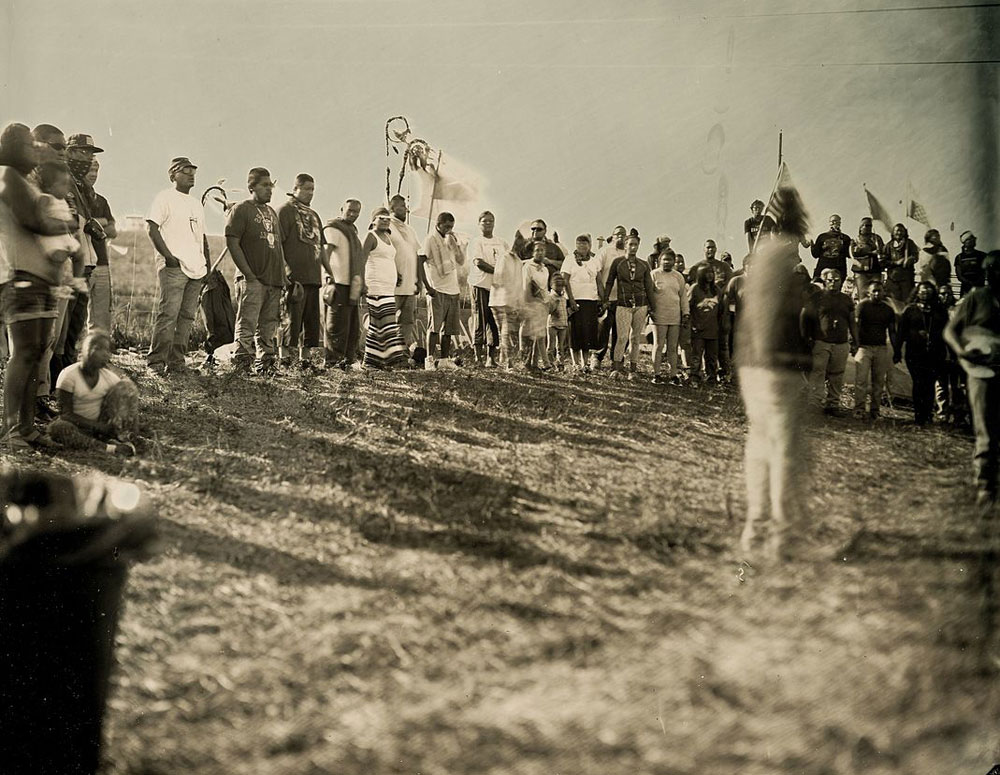
October 24, 2019; Star Tribune
The state of South Dakota has settled a lawsuit brought by the American Civil Liberties Union (ACLU) on behalf of Native American and environmental advocates by agreeing not to enforce certain aspects of three laws against so-called “riot boosting.” NPQ covered the laws when they were proposed and passed in what appeared to be a targeted threat against pipeline protestors. Under the laws, people helping to spread word of protests could be held responsible for lawbreaking at those protests, receiving prison sentences that could last decades. At the time, we wrote:
The Riot Boosting Act was developed in close conversation with TransCanada, which is set to build and operate the Keystone XL pipeline, and “other stakeholders”—a designation that did not include Native American or environmental groups—and it allows that company and other third parties to join the state in suing protestors.
Nick Tilsen, an Oglala Lakota Nation citizen and president of NDN Collective, says, “They’re basically criminalizing anybody who is standing up for their rights and putting their voice out there—and those who support us,”
Putting a cherry on the top, any monies that results from the lawsuits can be used to fund the pipeline.
Last month, a federal judge ruled in favor of the temporary injunction requested by the ACLU, which claimed that the law infringed upon rights of free speech. The settlement extends that ruling, making it permanent.
Sign up for our free newsletters
Subscribe to NPQ's newsletters to have our top stories delivered directly to your inbox.
By signing up, you agree to our privacy policy and terms of use, and to receive messages from NPQ and our partners.
The law is one among a number passed in various states over the last few years, some with similarly draconian punishments attached. Inside Climate News reports:
At least seven other states have passed harsh penalties for protesting near oil or gas pipelines or interfering with the infrastructure since the start of the Trump administration, according to the International Center for Not-for-Profit Law, which tracks the legislation. Several of those laws were based on a model bill promoted by the American Legislative Exchange Council, an industry-backed group.
In September, a group of Greenpeace activists in Texas who shut down the Houston Ship Channel by dangling from a bridge became the first group charged under any of the new protest laws.
This settlement is expected to set precedent for other states with such laws in place. “We will celebrate this win but remain vigilant against further government attempts to outlaw our right to peacefully assemble,” said Dallas Goldtooth of the Indigenous Environmental Network.
Some components of the three South Dakota laws still stand, however, even as plans to prepare the pipeline sites for construction next year progress.—Ruth McCambridge













